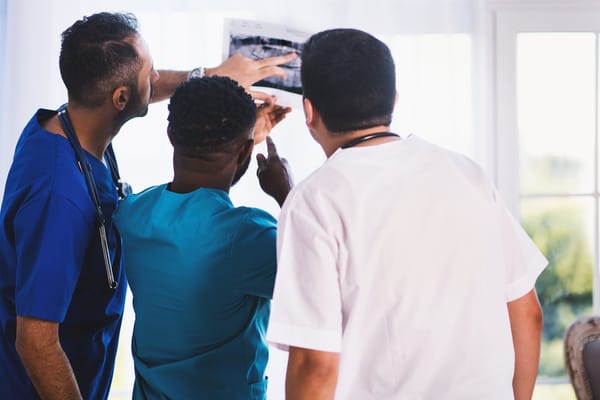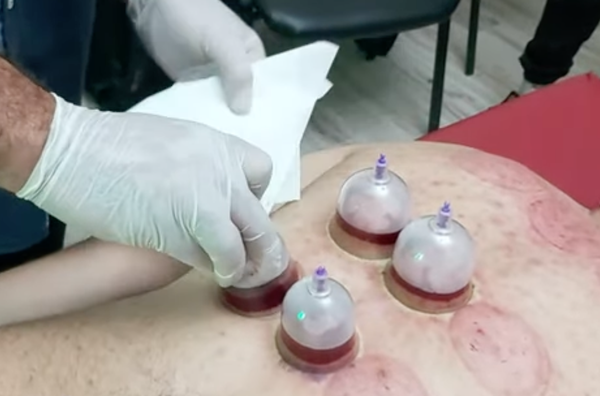How Giving Back Benefits Your Physical & Mental Health
Table of Content
Everyone needs help sometimes. No man is an island and despite the incredible darkness that humanity is capable of, there underlies a radiant togetherness; a unity that no word, no political map, or alliance can truly understand. By being human we are simply united over billions of years of evolutionary history, and the things we do today will echo in the future billions of years from now.
Some people make this empathetic connection to others the basis of their livelihood. This is how we end up with professions that are inherently in the spirit of looking after others, such as nursing, social work, and psychology.
Although it may seem that professions like these expose professionals to a range of stressful situations, there can be a huge amount of satisfaction gained from these professions, as they allow people to regularly engage with the parts of their brains that derive a real sense of reward and fulfillment from contributing to the happiness and wellbeing of others.
So if you’re in two minds about that Bachelor of Social Work program, or that direct entry MSN program you’ve been thinking about, let us show you just how these professions allow you to reap the little-known rewards of giving back to those around you.
The Origins of Giving
Although there exists a rather prevalent belief that humans are naturally selfish, looking at our history shows that although selfishness is a relevantly persistent trait in our species, it is far from our dominant motivator; and, in fact, much of what people have achieved through time has only been achieved due to our virulent need to co-operate and connect with each other.
However, where did this need come from? Well, humans are far from the first species to develop cooperative behaviors. Knowing that we descended from apes, however, shows that we were living in social, cooperative groups before we were even technically “human.” Evolution is based on the foundation that our genes mutate in response to life’s pressures, adapting a species’ physicality and mental capacity to better cope with these pressures. Because of this, it is safe to assume that sociality and cooperation are essential to our survival as a species.
Societies work as a group of individuals gathered around several goals. Usually, these goals are the availability of resources, a source of companionship, and communal safety. Part of all of these goals demands that members within a society give freely or share with one another. This can come in many forms, such as gift giving, helping a friend or family member move, covering a shift for a colleague, driving someone somewhere, or buying them groceries during a difficult time.
Giving is a symptom of the in-built human desire to connect and to share experiences. However, what does that mean for us as individuals?
Physical Benefits
When evolution determines that a developed trait assists an organism with survival, its next job is to then make that trait as easy as possible to access. For birds with powered flight, this comes in the form of hollow bones that allow the birds’ respiratory system the efficiency necessary to maintain flight.
In the context of human generosity, there are several physical benefits associated with the act of giving freely and from a place of kindness.
One of the key physical benefits of giving is lower blood pressure. Blood pressure is the force of blood pushing against your artery walls as it travels through the circulatory system. High blood pressure can cause several deeply inconvenient symptoms if allowed to reach serious levels, such as headaches, difficulty breathing, and nosebleeds. It also increases the risk of heart attack and heart disease. When we are kind or altruistic, the brain releases one of its pleasure and reward chemicals, namely oxytocin. Oxytocin is a chemical released during moments of physical or emotional intimacy, and is proven to reduce blood pressure.
Other studies also show that generosity can help provide a sense of relief to chronic pain, and even extend longevity.
Mental Benefits
It’s no secret that it feels good to be nice. As we stated earlier, the brain releases oxytocin when we are kind to one another. However, during moments of genuine generosity kindness also releases the brain’s other pleasure and reward chemicals.
All of these not only carry physical health benefits, but continued exposure to these chemicals can result in several major mental health benefits. It is shown that repeated acts of kindness improve self-esteem, and reduce symptoms of depression and anxiety.
Kindness is also proven to drastically reduce levels of stress, and to provide more emotional equilibrium during times of significant stress.
Act of Random Kindness
It’s easy to dismiss the quote from the movie Evan Almighty, where God (Morgan Freeman) tells Evan (Steve Carrell) that to change the world it just takes one “act of random kindness every day.” After all, it’s fairly idyllic and despite the fact that it feels encouraging to hear, it just doesn’t feel possible. After all, we are only one person, how can one small, random act of ours possibly change anything in this vast, huge world of over 8 billion people?
Well, the good news is that it’s not just an idyllic sentiment to provide a touching end to a comedy. Science tells us that it’s true. One act of random kindness creates a ripple effect. Our kindness fills us with genuine joy at our altruistic act, thereby encouraging further kindness in future.
Yet the most important and often overlooked thing is that just because it doesn’t change the entire world at once, it doesn’t mean that it doesn’t change the world for that one person that you helped that day. We never know what people are going through, or what invisible struggles may be plaguing those we share this life with. Pay that compliment, help a stranger, donate to charity. That little change can be someone’s reason to keep on going.
We hope that after reading this, you’re no longer in two minds about whatever vocation you were exploring that brought you here.











